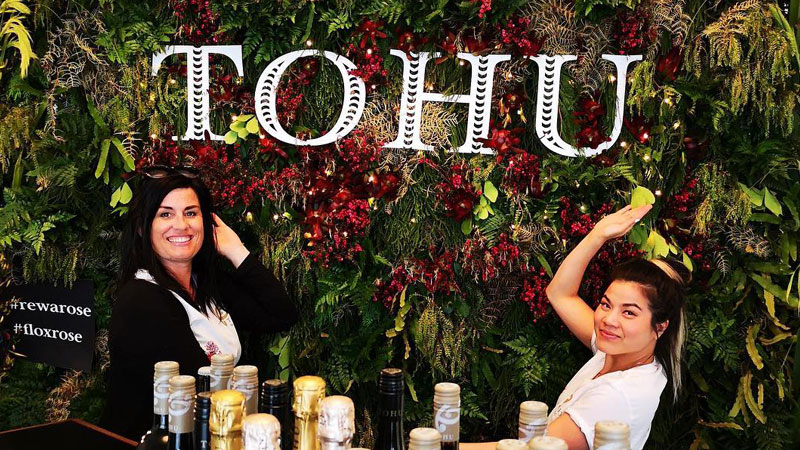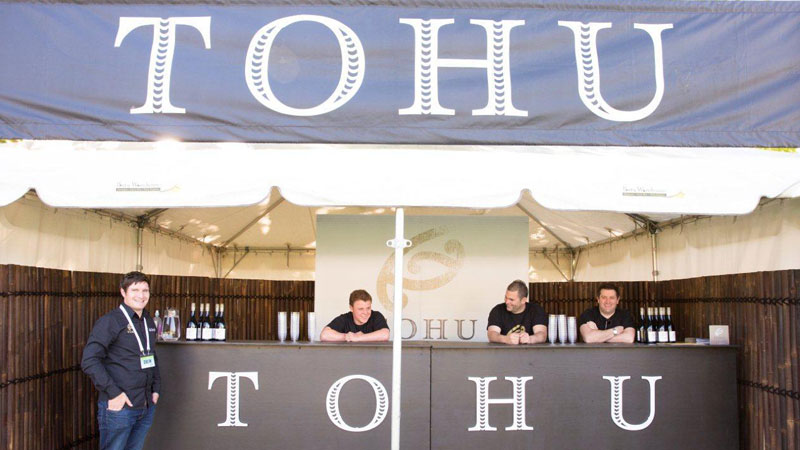“Some people have a one-year or five-year plan; well, we have literally a 500-year plan,” Dan Taylor, the export and sales manager for Tohu Wines, New Zealand’s first Māori-owned winery, says.
Taylor is referring to of Kaitiakitanga, a sense of duty and guardianship toward the land, cultural heritage, and legacy. Tohu Wines celebrated its 20th anniversary last fall, but the company believes it is on a much longer journey. Thus far, it has only scratched the surface of what it hopes to achieve.
Tohu Wines is owned by a larger Māori organization, Wakatū. Some 4,000 Māori families, descendants of four tribes from the north of New Zealand’s South Island, are Wakatū shareholders. Their heritage land lies within New Zealand’s now-world-famous Marlborough wine region. And so these Māori tribes have turned to wine production now to make the most of their land, while spreading the story of the Māori people and culture.
Don't Miss A Drop
Get the latest in beer, wine, and cocktail culture sent straight to your inbox.“These are things we can go out into the world with, to taste and share these stories,” Taylor says.
Tohu’s business model is informed by Māori heritage. “There’s a set of values that have been passed down for generations,” Taylor says. They include Rangatiratanga, or striving for excellence, Manaakitanga, elevating yourself by lifting others, Whanaungatanga, family and the idea of being more together than individually, and Pono, or doing what you say.

“Most companies say they have values but it’s all corporate bullshit,” assistant winemaker Anna McCarty says. “It’s lived and breathed here.”
That translates to a winemaking approach that begins where it always should — with the land itself. “The Māori connection all starts in the vineyards, it’s about knowing your vineyards and vines,” McCarty says. “With Māori people, you don’t own the land, you’re the caretaker for the next generation.”
Like any business, Tohu has financial goals to maintain; but it prioritizes that sense of guardianship, caretaking, and connectedness. Its approach has been successful by any metric. After starting as a brand in 1998, Tohu purchased its first vineyard in 2002 and its winemaking facility in 2012. It’s now fully responsible for all of its production process from start to finish, with over 100 hectares of vineyards. Tohu wines are distributed in 47 states in the U.S. and sold at stores like Trader Joe’s and Wegmans.
As would be expected in New Zealand, Tohu’s range features Sauvignon Blanc, plus Chardonnay and Pinot Noir. The company also has single-vineyard wines and a reserve line with bottles named for Māori elders, plus méthode traditionnelle sparkling wines, rosé, Pinot Gris, Merlot, and Syrah.
Tohu is now joined by several other Māori-owned or -operated wineries. In New Zealand, a tiny country of approximately 4.8 million people, 15 percent of the population is ethnically Māori. A Māori winemakers collective, Tuku, currently has five members: Tiki Wine & Vineyards, te Pā, Kuru Kuru, Ostler, and Steve Bird Wines.
Members of the collective point out that Māori wine still represents a very small portion of New Zealand’s overall production, an enormous operation that reached $1.7 billion in exports last year.
“There are about 600 wine brands in New Zealand; about 80 of those have Māori names but only six of those have any Māori connections,” Lina Stroud, business manager for Tiki Wine & Vineyards, says. Māori-owned wineries are diligently working to separate themselves from the pack.

“We just celebrated our first year together as a collective,” Stroud says. “We quickly worked out that we have a very similar ethos and that we could achieve so much more if we worked together.”
Those shared ideologies include several of the aforementioned Māori values, and the Tuku collective also cites Whakapapa, which Stroud explains as heritage. “We are all proud of our heritage and we have many generations working within our companies,” she says. “In the end we are all connected and it’s what binds us all together.”
While many of the collective’s wines are already available in the U.S., expect more to continue making their way ashore in the coming years. “The U.S. is one of our next target markets, so hopefully you will see a lot more of us soon,” Stroud says.
4 Māori-Owned Wines to Try
The most readily available wine from Tohu, Kono is “a quintessential Marlborough Sauvignon Blanc,” McCarty says. Crisp with green and sour apples and tropical fruits. Average price: $13.
Tohu Awatere Valley Pinot Noir
“Pinot is the unsung hero of Marlborough,” McCarty says. This is a strong introduction, with tangy red berries and cherries balanced by a moderate earthy spiciness and more body than you might expect. Average price: $21.
“I’m so excited about this one, it’s only going to get better and better,” McCarty says. Refreshing with mineral notes, citrus, stone fruits, and Creamsicle. Average price: $28.
A traditional Marlborough mix of tropical fruits, melons, and citrus to handle your New Zealand Sauvignon Blanc fix. Average price: $16.
